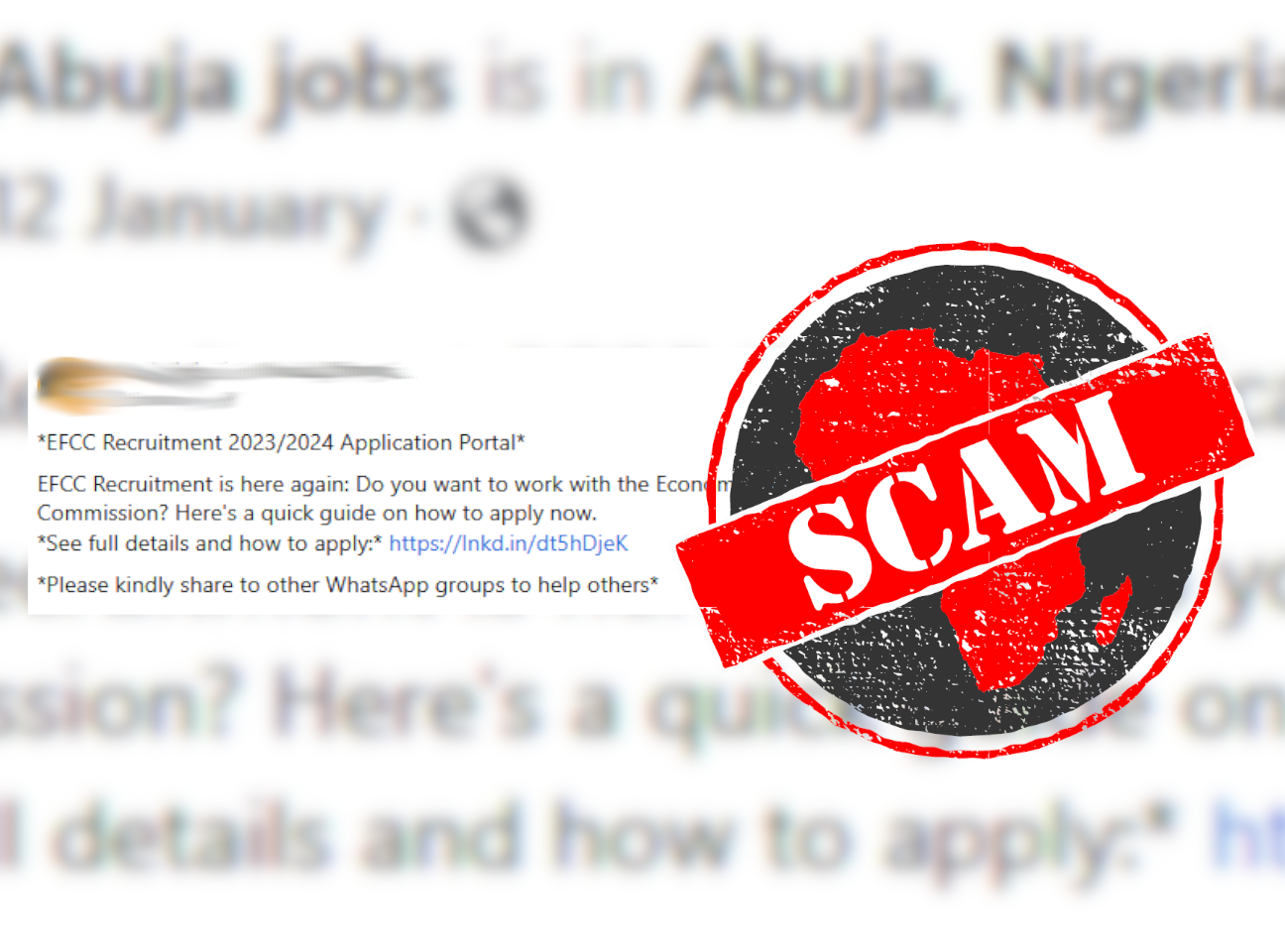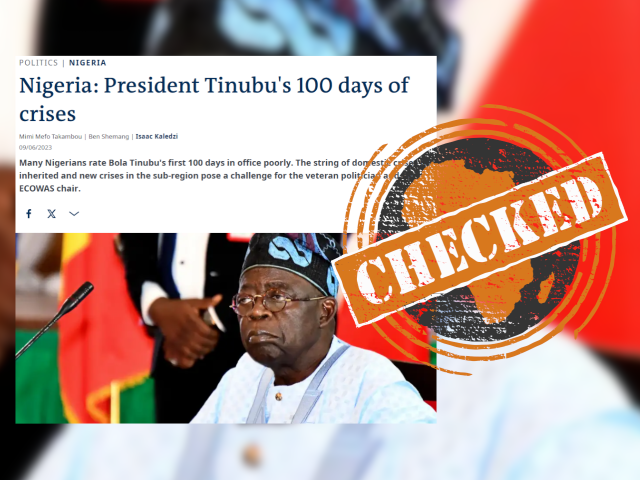IN SHORT: The name of Nigeria’s financial crimes commission is being used in another type of crime – a job scam. Ignore the recruitment ad circulating online.
A message circulating on Facebook in February 2023 claims that Nigeria’s Economic Financial Crimes Commission (EFCC) is recruiting. The commission investigates financial crimes.
The message reads: “EFCC Recruitment is here again: Do you want to work with the Economic and Financial Crimes Commission? Here's a quick guide on how to apply now.” It includes a link to a website where people can supposedly apply.
It also tells job hopefuls to share the post on WhatsApp.
The screenshot of the message has also been posted here on Facebook. The offer has also appeared on blogs.
But is it a legitimate recruitment exercise?

‘The handiwork of some dubious persons who are on to no good’
On 9 February, the EFCC took to Facebook to warn that the recruitment offer was fake – and probably a scam.
The warning reads:
The attention of the EFCC has been drawn to information circulating in the social media about a purported EFCC Recruitment 2023/2024 Application Portal with a link on how to apply for employment in the Commission.
The promotional material also urged members of the public to “share to other WhatsApp groups to help others. The Commission wishes to alert the public that the so-called EFCC Recruitment 2023/2024 Application Portal is fake and the handiwork of some dubious persons who are on to no good. The Commission warns the public to disregard the information circulated by the shadowy group and refrain from clicking on the link attached to their message. Information about the Commission’s activities, including job openings, can be obtained from its website.
Africa Check has debunked many online scams offering jobs, grants, loans and giveaways. To help protect yourself against fraudsters, read our guide on how to spot them.
Republish our content for free
For publishers: what to do if your post is rated false
A fact-checker has rated your Facebook or Instagram post as “false”, “altered”, “partly false” or “missing context”. This could have serious consequences. What do you do?
Click on our guide for the steps you should follow.
Publishers guideAfrica Check teams up with Facebook
Africa Check is a partner in Meta's third-party fact-checking programme to help stop the spread of false information on social media.
The content we rate as “false” will be downgraded on Facebook and Instagram. This means fewer people will see it.
You can also help identify false information on Facebook. This guide explains how.



Add new comment